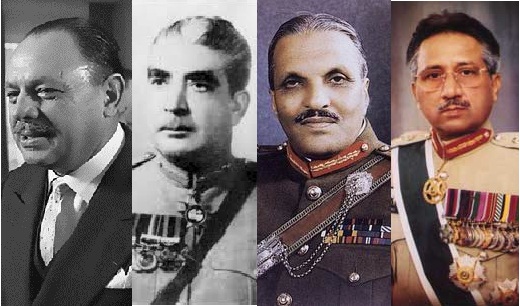ISLAMABAD, Pakistan: Only 19 percent Pakistanis see another military rule as the best system for the country while a substantial 67 percent of the country’s population believes that democratically elected governments constitute the best system for Pakistan, a PILDAT public opinion poll has revealed.
The nationwide poll was conducted during July 16, 2014 to August 6, 2014 with a large sample size of 3,065 citizens throughout Pakistan.
Public Opinion on trust in leaders depicts the following picture:
On top of the pyramid is the Chief Minister Punjab Shahbaz Sharif with 57 percent positive ratings. He is followed by Prime Minister Nawaz Sharif who received a 53 percent positive ratings. At 52 percent positive ratings nationwide, the Pakistan Tehreek-e-Insaf (PTI) Chairman Imran Khan is viewed nationwide as a Good or Very Good leader.
The leader of the Pakistan Awami Tehreek (PAT) Dr Tahirul Qadri’s public persona across Pakistan is steeped in negative perceptions of his leadership skills and potential. A whopping 72 percent of all Pakistanis evaluate him as a Bad or Very Bad leader while only 21 percent rated him as a Good to Very Good leader.
The former president and the All Pakistan Muslim League (APML) leader General (retd) Pervez Musharraf also remains an unpopular leader in Pakistan, albeit less unpopular than some of the other political leaders in Pakistan’s national politics. 62 percent Pakistanis rate him as Bad or Very Bad leader while 34 percent rated him as Good to Very Good leader.
The negative ratings of all other political leaders of Pakistan remain higher than their positive ratings in the public as shown in various opinion polls through previous years.
While 63 percent of all Pakistanis believe that the general elections held in May 2013 was somewhat to completely transparent and fair, 37 percent respondents see the May 2013 election as somewhat rigged to completely rigged.
An overwhelming majority of Pakistanis, 85 percent believe that it is critical that the Election Commission of Pakistan’s (ECP) functions need to be reformed and reconfigured. In comparison, 67 percent people felt the need for electoral reforms in a poll upon the conclusion of 100 days of the national and provincial governments in September 2013.

